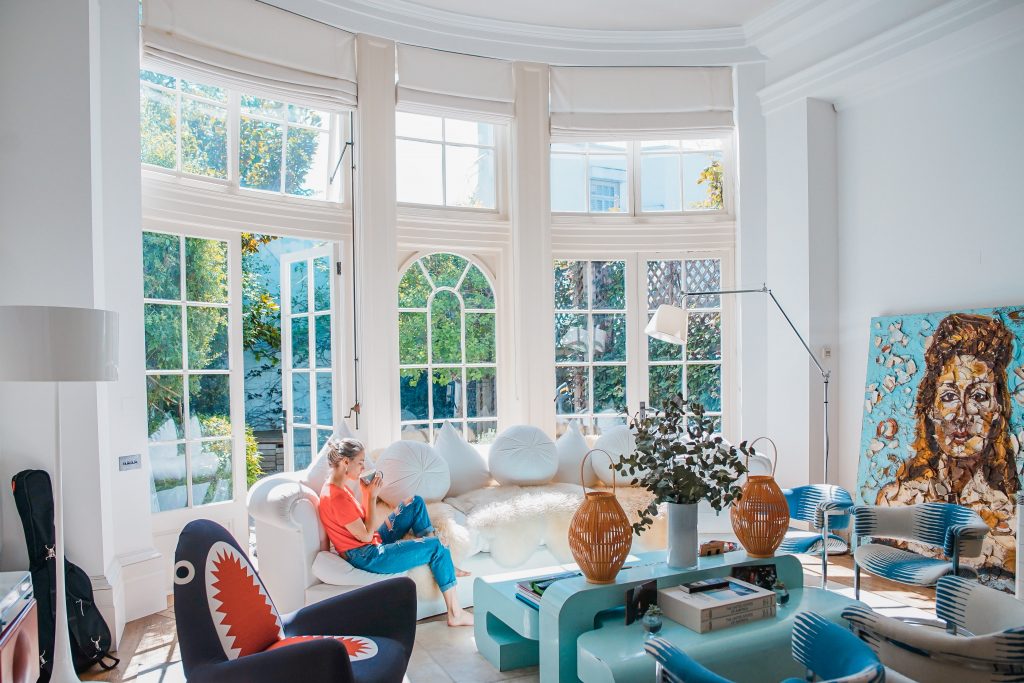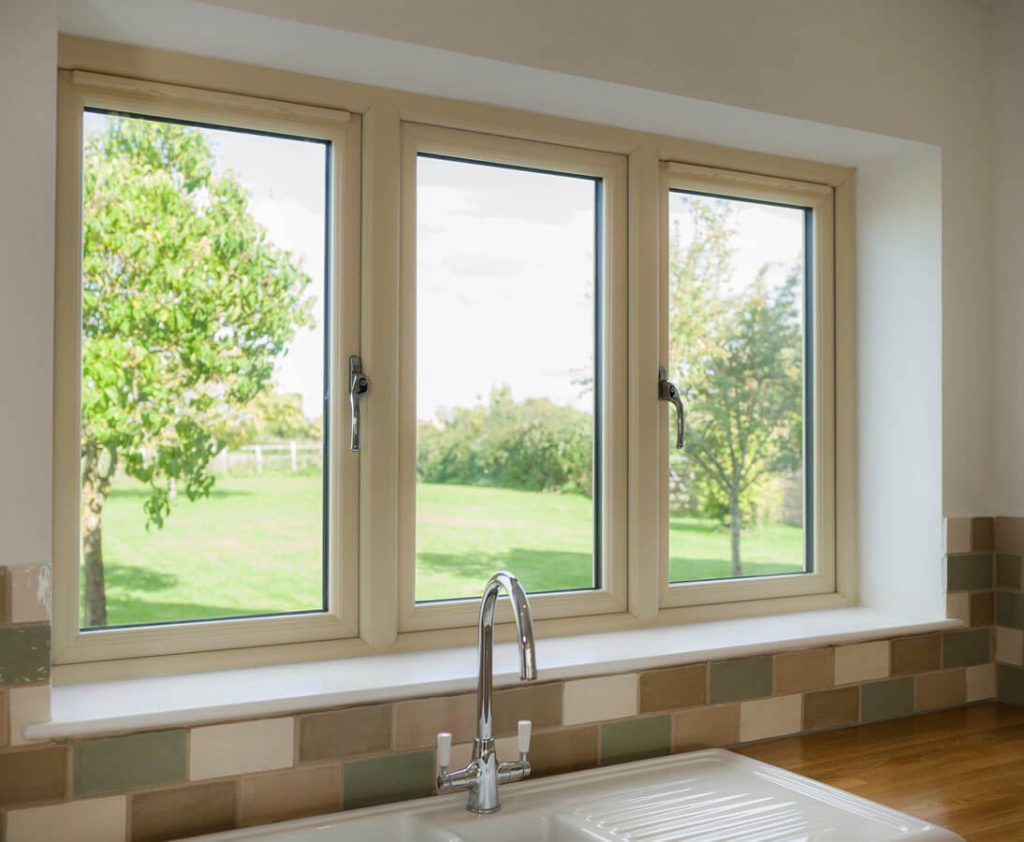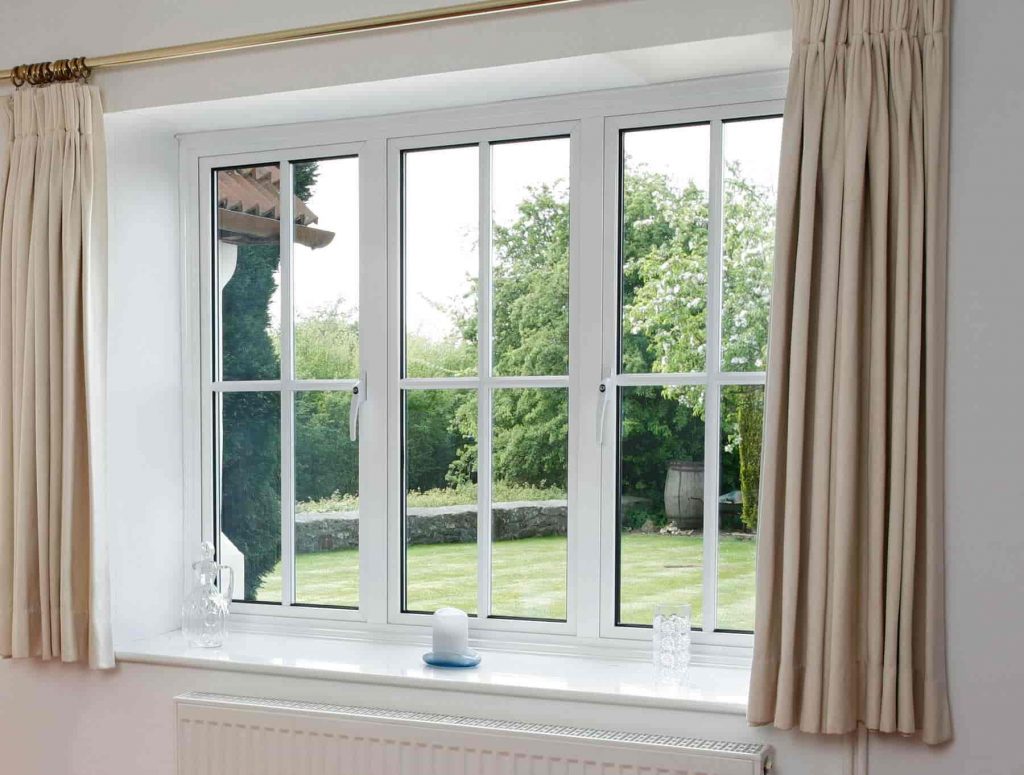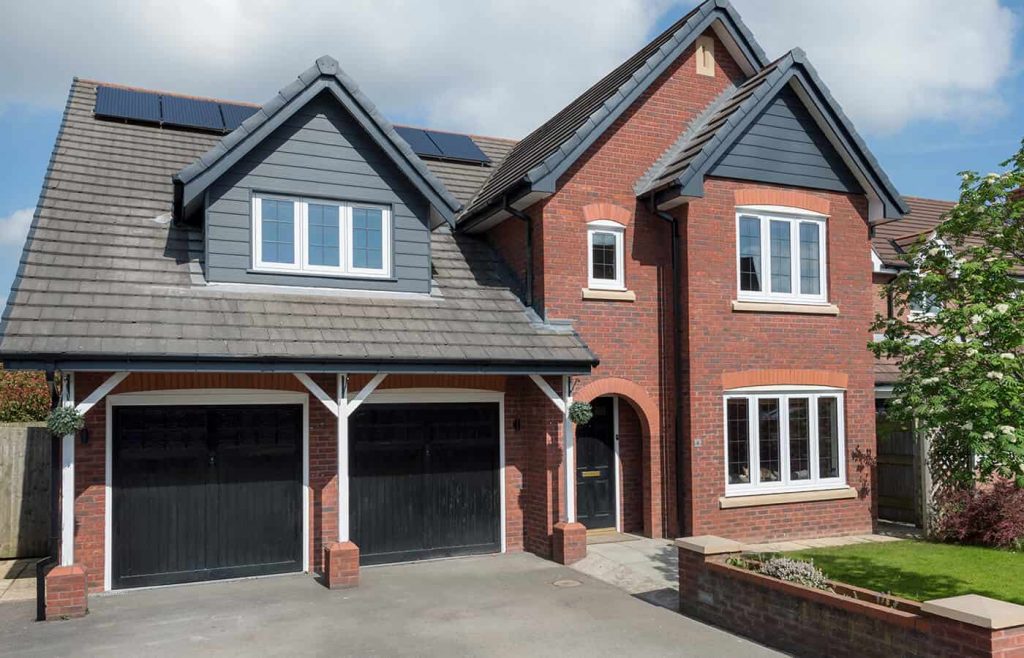Aluminium vs uPVC – which is better? For homeowners, this can be a tough decision to make. Both types of windows are great options and deciding between the two will ultimately depend on your needs in regard to the style of your home, your preferred aesthetics, durability, energy efficiency and budget. At Poole Joinery, we offer high quality uPVC and aluminium windows for homeowners in the Dorset area.
Each window frame material has its own unique benefits and drawbacks, making it essential to weigh your options when considering new windows for your home. In this blog, we’ll break down the pros and cons of uPVC vs aluminium windows to help you make an informed decision.

What are the differences between uPVC and aluminium windows?
UPVC (unplasticized polyvinyl chloride) windows are known for being cost-effective, low maintenance, and energy efficient. On the other hand, aluminium windows offer a sleek, modern look, are durable, and provide better security. uPVC frames are great for insulation while aluminium frames are more robust and stylish but may conduct heat.
Overview of uPVC Windows
uPVC windows are one of the most popular options, have become a standard in many homes across the UK. Known for their affordability and energy efficiency, they are an appealing option for many homeowners. But is uPVC the right choice for your home?
Pros of uPVC Windows

Cost-Effective
One of the main reasons homeowners choose uPVC windows is their cost-effectiveness. uPVC windows are generally more affordable than aluminium, making them a budget-friendly option for homeowners looking to upgrade their home without breaking the bank.
Excellent Thermal Performance
uPVC windows are known for their superior insulation properties and often achieve ratings of A+, maintaining a stable indoor temperature. They reduce heat loss helping you save on energy bills immediately after installation. uPVC windows come with double glazing or triple glazing, further improving their thermal efficiency which is better for the planet.
Low Maintenance
Unlike timber that requires regular maintenance, uPVC windows are very low maintenance. They resist corrosion, rot, and fading, requiring just a wipe-down occasionally to keep them looking good as new.
Durability
uPVC windows are weather-resistant, which means they can withstand harsh climate conditions without deteriorating. This durability makes them a more long term solution for homeowners, with a long lifespan of up to 20-25 years.
Security
All our uPVC windows are fitted with a multi-point locking system to ensure there are no weak points or vulnerabilities providing you and your family peace of mind.
Cons of uPVC Windows
Less Aesthetic Flexibility
While uPVC windows come in a wide range of colours and finishes, they can’t offer the sleek, modern aesthetic that aluminium provides. uPVC tends to have a bulkier appearance, which may not suit every architectural style, particularly in contemporary or minimalist homes.
Lower Strength
uPVC is not as strong as aluminium. As a result, they often have thicker frames to compensate for their weaker structure, reducing the amount of visible glass and potentially limiting the natural light entering your home.
Environmental Impact
While uPVC is widely recyclable, the production process of plastic-based materials is less environmentally friendly than that of aluminium, which is easier to recycle and reuse.
Overview of Aluminium Windows
Aluminium frames have grown in popularity, especially for modern and contemporary homes. With their slim profiles and durable construction, they are often seen as a premium option.
Pros of Aluminium Windows

Sleek & Slender Modern Design
Aluminium windows are known for their thin frames and sleek, minimalist design. Their strength allows for larger panes of glass and slimmer frames, providing a modern aesthetic style that maximises natural light and are ideal for architectural, commercial, public, new build, retail and domestic purposes.
Durability and Strength
Aluminium is incredibly strong and resistant to warping, cracking, rust, corrosion and splitting. They can easily last 30 years or more, truly withstanding the test of time even in coastal areas like Dorset, where salt air can damage other materials.
Low Maintenance
Aluminium windows are low maintenance, they don’t rust or fade over time, and a simple clean every so often will keep them in top condition.
Eco-Friendly
Aluminium is a sustainable material that can be recycled indefinitely without losing its strength. This makes it a more environmentally friendly choice especially for homeowners concerned about reducing their carbon footprint.
Enhanced Security
All of our aluminium windows are secured by a multipoint locking system, side-security brackets for additional security, and have the police approved initiative Secured by Design (SBD) accreditation for complete peace of mind.
Cons of Aluminium Windows
Higher Initial Cost
Aluminium frames typically come with a higher price tag compared to uPVC frames. While the long-term durability may offset the initial investment, the upfront cost can be a drawback if you’re on a budget.
Thermal Efficiency
Although aluminium windows are more energy-efficient than they once were—thanks to advancements like polyamide thermal breaks—uPVC is still a better option in terms of thermal insulation. Aluminium tends to conduct heat more easily which can lead to higher energy bills unless the windows have a thermal barrier.
Condensation
Aluminium can sometimes be more prone to condensation compared to uPVC, especially in homes with high humidity levels. This can cause minor discomfort, though our polyamide thermal breaks have reduced this issue significantly.

Comparison Factors: uPVC vs Aluminium Windows
Now that we’ve explored the individual pros and cons of uPVC and aluminium windows, let’s compare the two materials across key areas.
Cost
uPVC is the more budget-friendly option, making it accessible to a wider range of homeowners. Aluminium, while offering a sleek, modern aesthetic, comes with a higher upfront cost. However, it’s important to remember that aluminium frames can last longer, meaning they may offer better value in the long run.
Maintenance
Both materials require minimal maintenance, but aluminium has the slight edge due to its superior resistance to wear and tear. Both materials are resistant to rust, rot, and fading, but uPVC may need more frequent cleaning to prevent discolouration over time.
Energy Efficiency
uPVC windows take the lead in terms of thermal performance. Their plastic construction naturally provides better insulation, helping to reduce heat transfer during the colder months. Aluminium windows tend to be less energy efficient although they have improved in this regard thanks to the use of thermal breaks, but uPVC remains the better option for energy-efficiency.
Aesthetics and Design Flexibility
If you’re after sleek, slim frames that let in plenty of natural light, aluminium is the clear winner. Its strength allows for larger glass panes and smaller frames, making it a popular choice for modern and contemporary homes. uPVC, on the other hand, is often bulkier and may not suit all architectural styles. However, it is available in a variety of colours and finishes, including wood-effect options.
Durability and Lifespan
Aluminium windows are the stronger and highly durable material, with a lifespan that can exceed 30 years. They’re resistant to corrosion and can withstand harsh weather conditions better than uPVC. While uPVC windows are also durable and can last up to 25 years, they don’t offer the same long-term resilience as aluminium, especially in coastal areas where salt air can cause damage over time.
Choosing the Right Window Material for Your Home
When deciding between the two, consider the specific needs of your home, personal preferences and budget. If cost is a main concern and you want excellent thermal efficiency, uPVC is a great option. They offer good insulation, require little maintenance, and are affordable. On the other hand, if you prioritise aesthetics, durability, and long-term investment, aluminium may be the better choice, especially for modern homes or homes exposed to harsher weather conditions.
You should also think about your home’s architectural style. uPVC windows work well in traditional and classic designs, while aluminium’s sleek profiles are perfect for contemporary or minimalist homes.
Conclusion: uPVC vs Aluminium
When it comes to uPVC vs aluminum windows, both have their own advantages and disadvantages making them suitable for different types of homeowners and architectural styles. If you’re looking for affordability and energy efficiency, uPVC are a solid choice. For those prioritising design, durability, and longevity, aluminium stands out as the superior option.
At Poole Joinery, we’re here to help you find the perfect windows for your home. Whether you’re leaning towards uPVC or aluminium, our expert team is ready to guide you through the process, ensuring you make the right choice for your property. Explore our range of high-quality windows and get in touch with us today to discuss your next home improvement project.
For more information, check out our uPVC windows and aluminium windows.